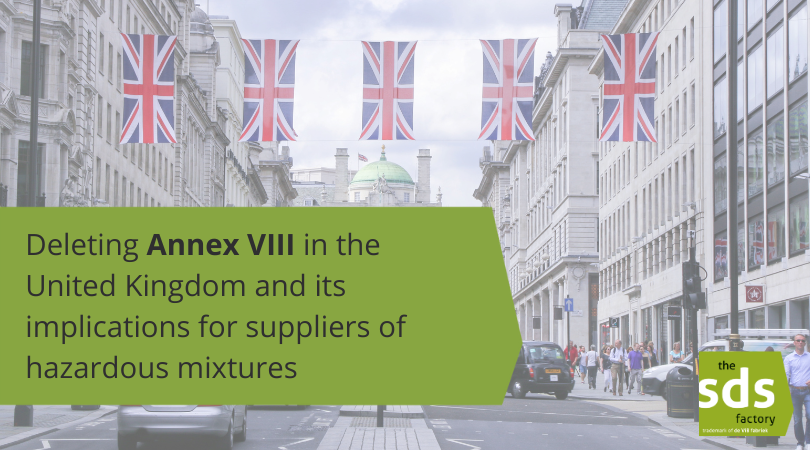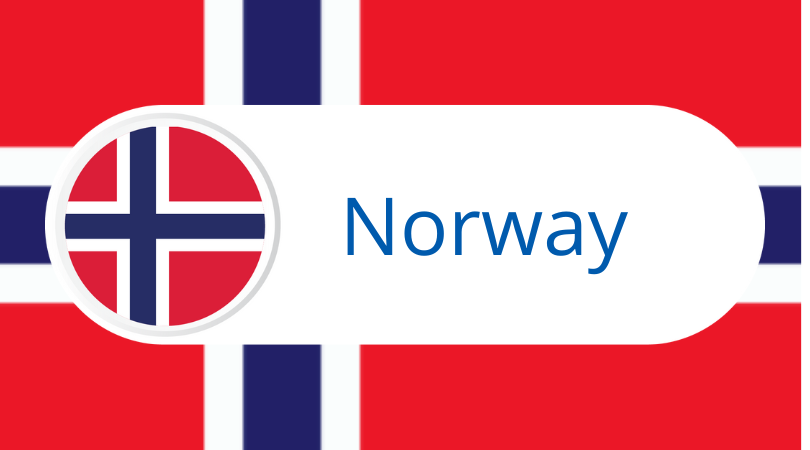Deleting Annex VIII in the United Kingdom and its implications for suppliers of hazardous mixtures

As you may be aware, due to Brexit, the CLP legislation in the United Kingdom was replaced by the 'GB CLP Regulation.' The GB CLP came into effect on January 1, 2021.
During the conversion of European legislation to the GB CLP, it was discovered last year that Annex VIII was inadvertently included. This caught everyone off guard, leading to confusion surrounding .i6z dossiers, UFI codes that should or should not be mentioned on packaging and ViBs, and the absence of a digital portal like the PCN portal in the EU.
A decision has now been made, and Annex VIII will be removed from the GB CLP legislation. The proposal for deletion was fully approved on June 29 of this year, meaning Annex VIII will no longer be part of British legislation from the end of 2023.
What does this mean for you as a supplier of products in the UK market?
Producers, suppliers, and distributors are advised to notify their hazardous mixtures to the National Poisons Information Service (NPIS). This can be done by emailing the SDS to sds.npis@nhs.net.
However, it is important to note that sending a SDS to NPIS does not automatically mean that the product is approved for sale in Great Britain.
A UFI code is not mandatory. However, if the product already has been assigned a UFI code, NPIS will register it. They do request that the UFI code be clearly indicated on the first page of the ViB.
What does this mean for you as a supplier of products in the Northern Ireland market?
In Northern Ireland, the EU CLP legislation is still in force. This means that European legislation, including Annex VIII (PCN notifications and UFI codes), must be followed.
Producers and suppliers of hazardous mixtures in the Northern Ireland market are required to be assigned a UFI code, and these products must be notified through the PCN portal.
NPIS also serves as the poison center in Northern Ireland. Since they do not have access to the PCN portal, notifications must also be forwarded to NPIS.
This means that an .i6z dossier must be sent via email to sds.npis@nhs.net.
An .i6z dossier can be generated in two ways.
Option 1:
The dossier is manually entered and exported in the IUCLID platform.
Option 2:
The dossier is entered and exported in third-party software.
NOTE: Because an .i6z file contains a complete composition of your product, and email is not the safest medium to send information, we always advise against sending information from an .i6z file via email. We will always recommend sending only a SDS to NPIS.
While our advice may not be legally correct, it is the best option to protect your composition. Once a secure alternative is made available, we will, of course, inform you!





